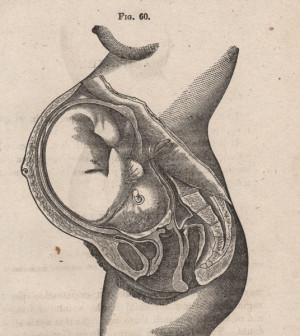- 8 Ways to Increase Dopamine Naturally
- 7 Best Breads for Maintaining Stable Blood Sugar
- Gelatin vs. Collagen: Which is Best for Skin, Nails, and Joints?
- The Long-Term Effects of Daily Turmeric Supplements on Liver Health
- Could Your Grocery Store Meat Be Causing Recurring UTIs?
- Are You Making This Expensive Thermostat Error This Winter?
- Recognizing the Signs of Hypothyroidism
- 10 Strategies to Overcome Insomnia
- Could Artificial Sweeteners Be Aging the Brain Faster?
- Techniques for Soothing Your Nervous System
Smoking in Pregnancy Tied to Later Nicotine Addiction in Daughters


Daughters exposed to their mother’s stress hormones in the womb may be more likely to become nicotine-dependent later in life, a new long-term study suggests. It also found that girls whose mothers smoked during pregnancy were at higher risk for eventual nicotine dependence.
Researchers analyzed data from 649 women and 437 men who were followed for 40 years after being born to mothers whose hormone levels and smoking status were recorded during pregnancy.
The results showed that exposure to elevated levels of the stress hormone cortisol in the womb and having a mother who smoked during pregnancy was linked to an increased likelihood that daughters, but not sons, would be at raised risk for nicotine dependence as adults.
The study was published in the January issue of the journal Biological Psychiatry.
“Our findings highlight the particular vulnerability of daughters to long-term adverse outcomes following maternal stress and smoking during pregnancy,” first author Dr. Laura Stroud said in a journal news release.
“We don’t yet know why this is, but possible mechanisms include sex differences in stress hormone regulation in the placenta and adaptation to prenatal environmental exposures,” said Stroud. She is a researcher with the Centers for Behavioral and Preventive Medicine at the Miriam Hospital in Providence, R.I.
“Also, cortisol and nicotine may affect developing male and female brains differently,” she added.
It may be that the daughters are more likely to pass on a similar risk of nicotine dependence to their own daughters, making a cycle that goes from one generation to the next, Stroud suggested.
Stroud also said the findings suggest “that maternal smoking and high stress hormones represent a ‘double-hit’ in terms of increasing an offspring’s risk for nicotine addiction as an adult. Because mothers who smoke are often more stressed and living in adverse conditions, these findings represent a major public health concern.”
More information
The U.S. National Institute on Drug Abuse has more about tobacco addiction.
Source: HealthDay
Copyright © 2026 HealthDay. All rights reserved.










